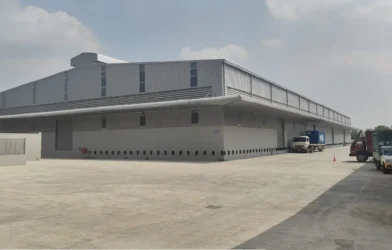Subtotal ₹0.00
Dr Prashant Thakur, Regional Director & head-Research, Anarock Group
Wars generally have a negative effect on economies. Armed conflicts, particularly long-drawn wars stall/delay construction in view of scarcity of raw materials due to their diversion for defence infrastructure projects. Besides, building materials become costlier and infrastructure development outlay gets diverted to defence infra, adversely impacting residential, commercial, retail and hospitality segments. The Indo-Pak conflicts in the past have shown their negative impact on residential, commercial, retail and hospitality segments. Particularly, the capital values of housing see a decline.
If the current India-Pakistan conflict broadens, we should be prepared for certain ramifications.
- Housing – Residential absorption in Delhi-NCR and other parts of north India may witness a short-term dip of between 5–10%. Luxury housing buyers tend to delay purchases in periods of uncertainty. Demand for mid-income housing will be the first to recover once normalcy is restored. However, prices of cement and steel would remain elevated over the medium term unless the government intervenes.
- Commercial Real Estate – If the conflict persists or widens, we can reasonably expect MNCs to put their entry/expansion plans into India on temporary hold. This would obviously impact absorption numbers, but long-term demand — most notably from the GCC, BFSI and IT sectors will return and strengthen within 12 months or less.
- Retail Real Estate – Larger malls have less to worry about because of long-term leases and also rent-waiver clauses. They can therefore weather such a storm more adroitly than high-street retail. We may see a drop in footfall and store launches getting postponed. Nevertheless, India’s consumption will overcome these odds quickly and Indian retailers have perfected the art of nimbleness during COVID-19. As such we can expect highly imaginative promotions to draw the crowds back.
- Hospitality Real Estate – Naturally, Delhi, Kashmir, and other impacted regions are going to see a flurry of cancellations if the conflict persists or widens. We may see hotel occupancies drop by anywhere between 10-15% in these areas. However, domestic leisure travel which accounts for almost 90% of room-nights ,will not flounder and we can definitely expect a massive surge of ‘victory tourism’ like the one seen post Kargil war, once hostilities cease.
Prices and Rentals
No significant drop in housing capital values is expected unless hostilities stretch longer than one fiscal year. Today’s market is dominated by large, listed and financially robust developers who do not carry excessive leverage. This gives them prolonged ‘holding power’, and the major banks also are well-capitalised. There may be a pause on price hikes, followed by a sharp hike in prices on account of higher construction costs next year.
The Bottom Line
If past wars and conflicts have taught us anything, it is this that they can temporarily effect sentiment and freeze decisions, but they cannot break India’s real estate market. We may see some short-term sluggishness in the market, but there is no question of an outright plunge. The country’s economy has strengthened considerably, its real estate sector has become more disciplined and regulated, and homebuyers showed their strong will for homeownership during Covid -19 which was expected to be the death-knell of the housing market. We are good to go, for both short and long haul.














